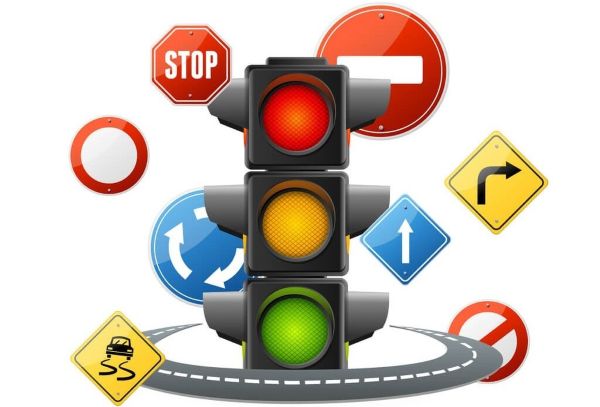

Pros and Cons of Taking Driving Lessons Before Your Test in USA
Learning to drive is a rite of passage for many in the United States. Whether you're a teenager eager to hit the road or an adult finally tackling the task, getting your driver's license is both exciting and slightly nerve-wracking. One of the biggest decisions you'll face is whether or not to take professional driving lessons before your driving test. While some prefer learning from a parent or friend, others opt for structured lessons with a certified instructor. So, are driving lessons really worth it? Let's take a balanced look at the pros and cons. Explore Horizon Driving School in Ohio here.
The Pros of Taking Driving Lessons Before Your Test
1. Structured Learning Experience
One of the biggest advantages of taking professional driving lessons is the structure they provide. Driving schools follow a comprehensive curriculum that covers everything from parking and lane changing to highway driving and emergency situations. This structure ensures you don't miss any critical skills, unlike informal lessons that might skip over key areas due to time constraints or lack of expertise.
2. Learn from Certified Professionals
Driving instructors are trained to teach. They know the laws, understand road etiquette, and are experienced in handling anxious new drivers. A professional can correct bad habits early, explain rules clearly, and offer personalized advice to help you improve. Learning from a certified expert can make you a safer, more confident driver.
3. Better Prepared for the Test
The driving test in the USA isn't just about knowing how to drive — it's about demonstrating that knowledge confidently and legally. Many instructors know the test routes and examiner preferences. They can provide mock driving tests that simulate real conditions, helping you understand what to expect and reduce test-day anxiety.
4. Insurance Discounts
Some insurance companies offer discounts to new drivers who have completed an accredited driving school program. This can save you hundreds of dollars annually, especially if you're a teen driver who typically faces higher premiums. It's a long-term benefit that many don't consider but is well worth factoring in.
5. Boosts Confidence
Confidence behind the wheel doesn't come overnight. Driving lessons help build that confidence gradually, in a safe and supervised environment. You'll be less likely to panic during tricky situations, such as merging onto a busy highway or parallel parking in a tight spot, if you've practiced those maneuvers with an instructor.
The Cons of Taking Driving Lessons Before Your Test
1. Cost Can Be High
Let's face it: driving lessons aren't cheap. Depending on your location, a package of lessons can cost anywhere from $300 to $800 or more. Some people may not have the financial flexibility to afford these services and opt to learn from family or friends instead. For families on a budget, this can be a deal-breaker.
2. Scheduling Inconvenience
Coordinating lessons with an instructor can sometimes be inconvenient. Availability might not always match your own schedule, especially if you're balancing school, work, or other commitments. Some driving schools have long wait times for appointments, which can delay your progress.
3. Variable Instructor Quality
Not all instructors are created equal. While most are competent and professional, some may not be the right fit for your learning style. An instructor who's impatient, distracted, or unclear in their teaching can do more harm than good. It might take a lesson or two to find the right match, which can be frustrating.
4. Over-Reliance on Instruction
Sometimes, students become too dependent on their instructors. They may follow directions well during lessons but struggle when driving independently. This over-reliance can backfire during the actual test when no one is there to prompt or guide them. It's essential to balance professional lessons with solo practice to build true independence.
5. Less Personal Approach
Learning from a professional can sometimes feel formal or impersonal, especially compared to learning with a trusted family member. Some learners thrive in a more relaxed environment and may feel more at ease with a parent or friend in the passenger seat. Instructors have to follow rules and can't always accommodate your comfort level in the same way.
Who Should Consider Taking Lessons?
Driving lessons may not be for everyone, but they're incredibly helpful for:
- First-time drivers with no prior experience
- Teenagers who want to ensure they're fully prepared
- Adults who delayed learning and want structured support
- Anyone who failed the driving test previously
- Nervous drivers who need extra help building confidence
If any of these sound like you, investing in professional lessons might be a smart move.
Tips for Making the Most of Driving Lessons
- Do Your Research: Not all schools are equal. Read reviews, check credentials, and ask for recommendations before committing.
- Practice Outside of Lessons: Combine professional lessons with at-home practice to reinforce what you've learned.
- Be Honest About Your Weaknesses: Tell your instructor which areas scare or confuse you. They can help you work through them in a safe setting.
- Ask Questions: Don't be afraid to speak up if something isn't clear. Instructors are there to help, not to judge.
- Stay Consistent: Try to keep your lessons close together. Regular practice helps reinforce skills and speeds up the learning process.
Final Thoughts
Taking driving lessons before your test in the USA can be a game-changer — but it isn't the only path to success. Whether you choose to enroll in a professional driving school or learn from a trusted family member, the most important thing is to be a safe, competent, and confident driver. Weighing the pros and cons can help you make an informed decision that fits your budget, schedule, and personal learning style.
Remember, passing the driving test is just the beginning. The real test happens every day you're on the road — and preparation is key to staying safe and responsible behind the wheel.

